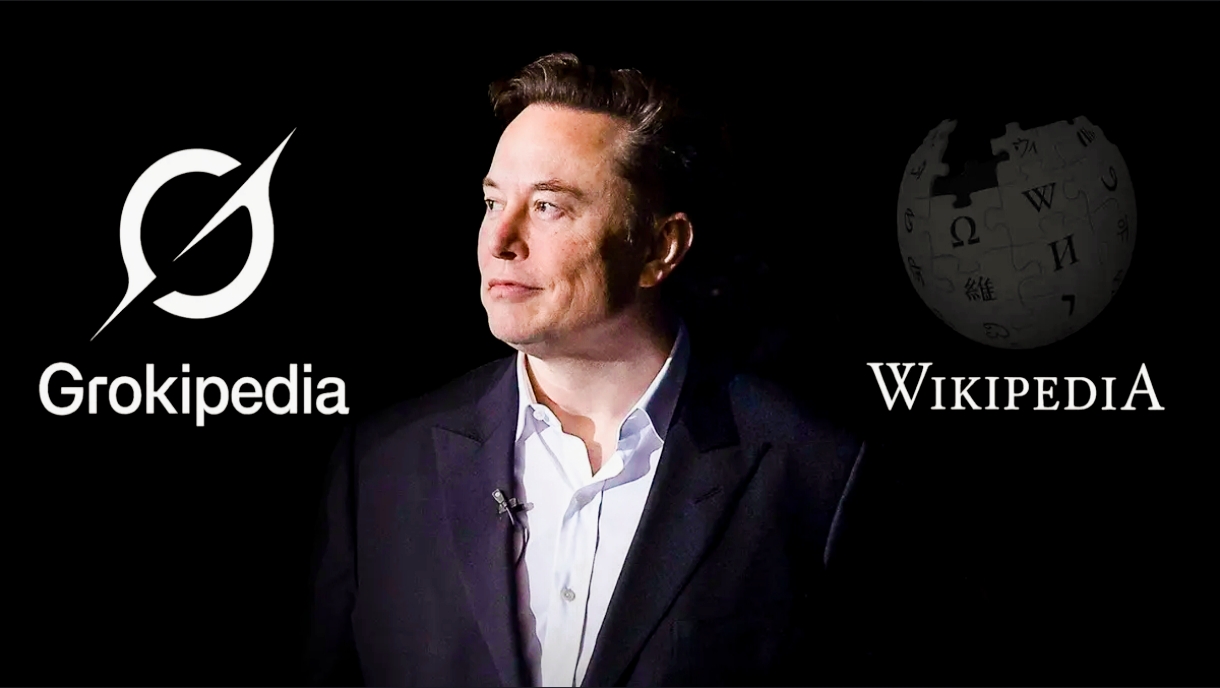The "Grokipedia" Outage Disrupts Elon Musk's Project to Compete with Wikipedia

In a new attempt to expand the influence of artificial intelligence in the world of knowledge, American billionaire Elon Musk launched his massive encyclopedic project "Grokipedia", to be a direct competitor to the Wikipedia encyclopedia, which Musk has accused for years of "political bias".
However, the project's launch was not successful, as the site experienced a sudden technical failure just minutes after its official launch on Monday, due to the immense pressure on the servers, before it returned to operation later, according to American media reports, notably Business Insider and Wired.
According to the homepage of the site, the number of articles published at launch exceeded 885 thousand knowledge materials, which is an ambitious figure for a project that is still in its early stages, compared to the millions of articles that Wikipedia has had since its inception.
* "Grokipedia" .. An Encyclopedia Without Advertising or a Project with a New Ideological Face?
Musk had previously announced that the goal of his project is to establish an encyclopedia "free of advertising" and to provide users with a platform that presents knowledge with complete neutrality.
The American billionaire has repeated his criticisms of "Wikipedia", describing it as "Wokipedia", referring to what he considers "ideological bias" on its part.
However, experts in media and artificial intelligence have expressed their doubts about the possibility of achieving complete neutrality in an encyclopedia that relies on artificial intelligence algorithms, as these algorithms themselves are fed with data that may carry implicit biases that are difficult to completely eliminate.
Analysts believe that "Grokipedia" will face significant challenges in building an accurate and reliable knowledge base, especially since the almost complete reliance on artificial intelligence in generating articles may lead to informational errors or unverified citations from Wikipedia itself, which could put the project in the face of issues related to copyright and credibility.
* Testing Credibility and Neutrality
Reports indicate that the new platform relies on the smart assistant "Grok", developed by Musk's company xAI, to generate encyclopedic content based on artificial intelligence and machine learning techniques.
Observers believe that "Grokipedia" is still in its experimental phase, and that the true success of the project will not be measured solely by the number of articles published, but by its ability to gain users' trust and ensure the accuracy of the published information.
Despite the technical challenges and controversial content, some believe that Musk's success in overcoming these obstacles could bring about a significant shift in the world of electronic encyclopedias, opening the door to open competition over "digital knowledge" between traditional platforms and those based on artificial intelligence.
However, experts warn that Musk's new project may reproduce the same biases that he criticizes, albeit with a shinier digital facade and bolder marketing.
* Between Ambition and Credibility
With this project, Elon Musk aims to redefine the concept of "the free encyclopedia", presenting his vision of a world where knowledge is managed through artificial intelligence instead of human editors.
However, the first experience of "Grokipedia" revealed the fragility of its beginnings, turning the launch moment that was supposed to be a technical triumph into an embarrassing test of users' patience and followers' trust.
Although the road ahead for the new project is still long, its success or failure will determine whether artificial intelligence can create "truth" as Musk dreams, or whether it will merely rephrase it.